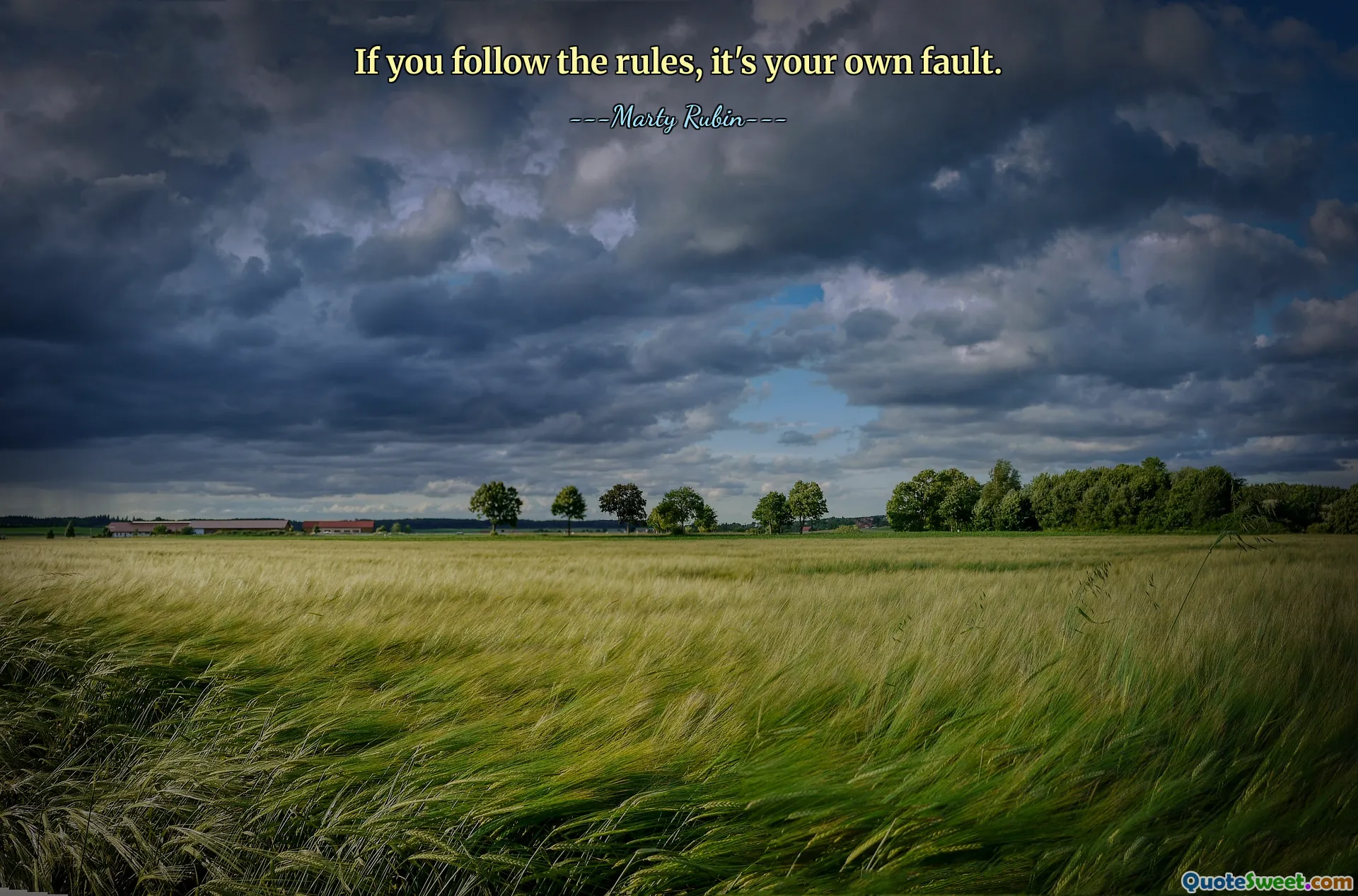
If you follow the rules, it's your own fault.
This quote challenges the conventional notion that simply adhering to rules guarantees safety or correctness. It suggests that blindly following rules can sometimes lead to unforeseen consequences or a false sense of security. Rules are often created with good intentions, aiming to guide behavior and maintain order. However, they may not always account for the complexities of individual situations or the nuances of human judgment. When one blindly follows rules without critical thinking, it can result in overlooking important aspects or failing to adapt to unique circumstances. This quote encourages a reflective approach—questioning whether rules are appropriate for a given context and considering the responsibilities that come with judgment and decision-making. It also underscores personal accountability; if someone chooses to follow rules rigidly without understanding their purpose, they might be held responsible if things go wrong. In a broader sense, it emphasizes the importance of critical thinking and moral responsibility. Rules are tools, not infallible commandments, and understanding their intent and limitations is crucial for ethical and practical decision-making. Ultimately, this quote prompts individuals to think beyond surface directives and to consider the implications of their actions and adherence to authority, fostering a more nuanced approach to rules, legality, and morality.











